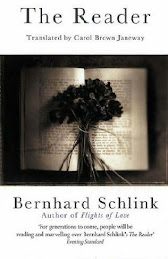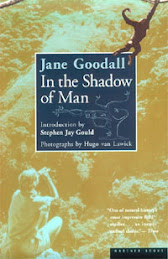
Maybe Baby
by Tenaya Darlington
I received this book from a friend as a Christmas Gift, and it took me nearly a year just to get to it, I was so backlogged on books!
Maybe Baby is a strange little book following the Glide family as their youngest daughter, Gretchen, gestates and births the first grandchild. The story, while revolving around this birth, is more about how the Glide parents, Judy and Rusty, try to reconnect with their three offspring, all of whom they had alienated into practical disownment after highschool. We learn throughout the book that Judy and Rusty are a fairly typical sheltered, white, middle-class, midwestern couple who have children that go on to be a gay theatre major, a rock star, and a women's studies major, all of which frighten and anger Rusty. Judy allows him to drive his children out of their lives, but decides to reconnect with her daughter in a fit of breaking-and-entering when she learns of Gretchen's pregnancy. Through an odd series of events, this brings home their other two children, Carson and Henry, and gives Rusty and Judy a chance to reconnect with them.
The meat of the story revolves around Gretchen's unusual lifestyle. Gretchen and her boyfriend Ray - an eccentric modern dancer whom Rusty nicknames "The Chimp" - are founding members of a somewhat reclusive society dedicating to raising children in a completely gender-neutral way, including names, clothing, and toys. No one but the children's parents are to know the baby's biological sex, hence the title Maybe Baby (Maybe a boy, maybe a girl). Gretchen and Ray insist upon strict rules involving clothing and language around their baby that Rusty and Judy, and Ray's mother Sunny and her boyfriend Klaus, must agree upon to be a part of the child's life. Can these grandparents come to terms with the rules, or will they surreptitiously try to break them? The answer may surprise you.
I found Darlington's writing plain and straightforward; she is more concerned with exploring her ideas on social interactions than she is on perfecting her prose. While at times this made the book sound more like a story a friend was telling you over coffee rather than literature, it allowed the reader to be brought into the tale more easily. Many of the characters in Darlington's book are a bit two-dimensional, although Judy is very well-developed and eventually Rusty is, as well, although it takes most of the book to get there. I would have liked more character development with Gretchen, Henry and Carson, as well, however the book is more concerned with the parent's perspectives than that of the children. The author's primary concern is: How do typical Midwestern meat-and-potatoes middle-agers come to terms with the culture shock of modern gender and sexuality, especially when it is thrust upon them by their immediate family? I also felt that Darlington too much effort describing the minute details of the actions of the characters, and that it distracted her from exploring the deeper motivations of her characters.
Overall Maybe Baby was a fairly easy and enjoyable read. It had potential to inspire deeper thought into the social constructs of gender and sexuality and how they are percieved by a generation that came of age in a time where such matters were not discussed, but ultimately fell a bit short of that goal.



No comments:
Post a Comment